On Monday, May 2nd, the Supreme Court draft opinion about the fate of the 1973 Roe v. Wade decision was leaked and published by Politico, sending shockwaves through the country and beyond.
In 2018, Mississippi enacted a law called the Gestational Age Act that would ban abortion after 15 weeks except in medical emergencies. There were no exceptions for instances of rape or incest. This contradicts the monumental Roe v. Wade court decision that allowed abortion up to fetal viability, or 24 weeks. The only abortion provider in the state, Jackson Women’s Health challenged the law a day before it was meant to go into effect. Both the US District Court for the Southern District of Mississippi and the 5th Circuit Court of Appeals ruled it unconstitutional. The state appealed the case to the Supreme Court, who agreed to review the case.
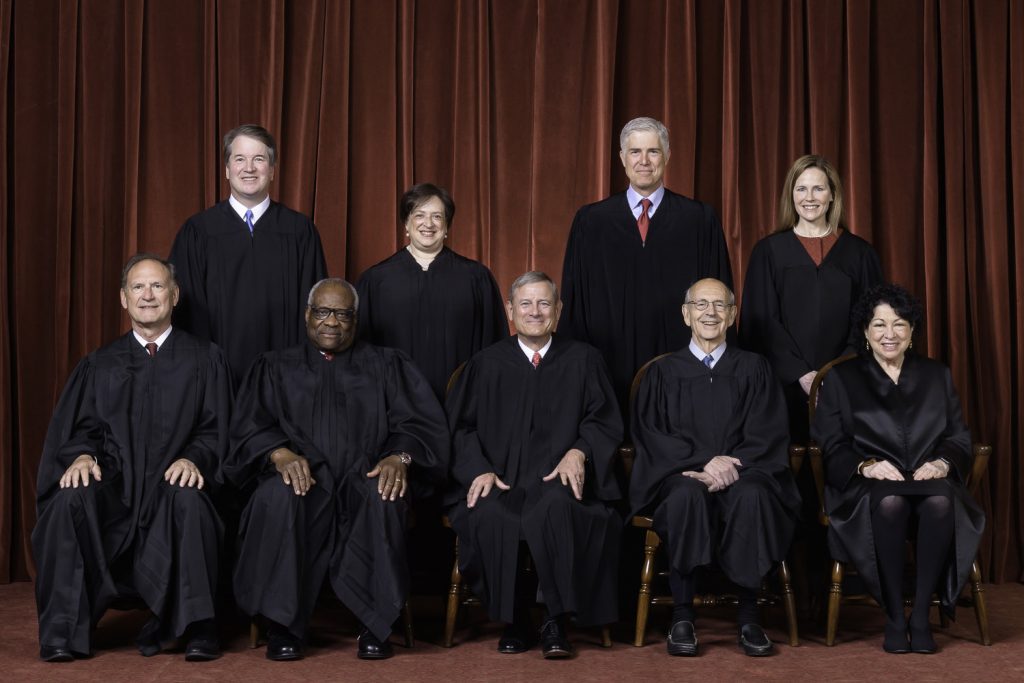
The first hearing in Jackson Women’s Health vs. Dobbs was on December 1, 2021. The court will be deciding “whether all pre-viability prohibitions on elective abortions are unconstitutional.” In defense of this proposed law, Mississippi argued that both monumental abortion rights cases, Roe v. Wade and Planned Parenthood were decided incorrectly. The case is ongoing and is the basis for the Supreme Court’s re-consideration of Roe v. Wade. If they rule in favor of Mississippi it will allow states to ban abortion before viability, the hallmark of Roe v. Wade. The leaked decision on this case has sparked mass protests and opposition to the Supreme Court even though the decision is not yet official.
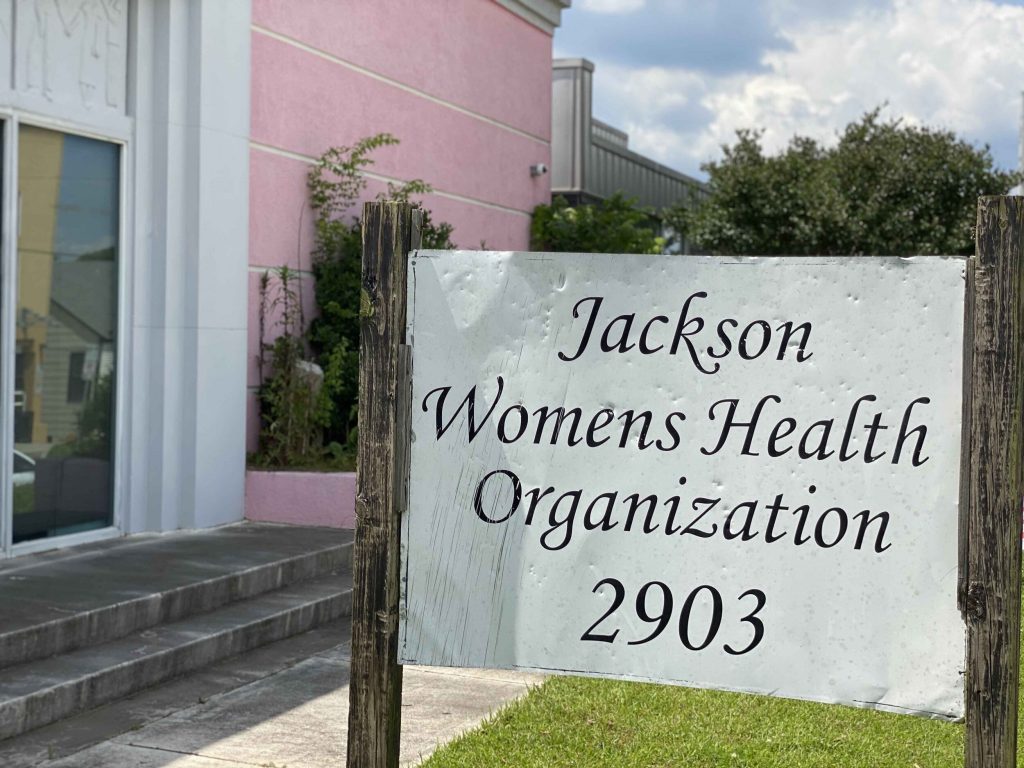
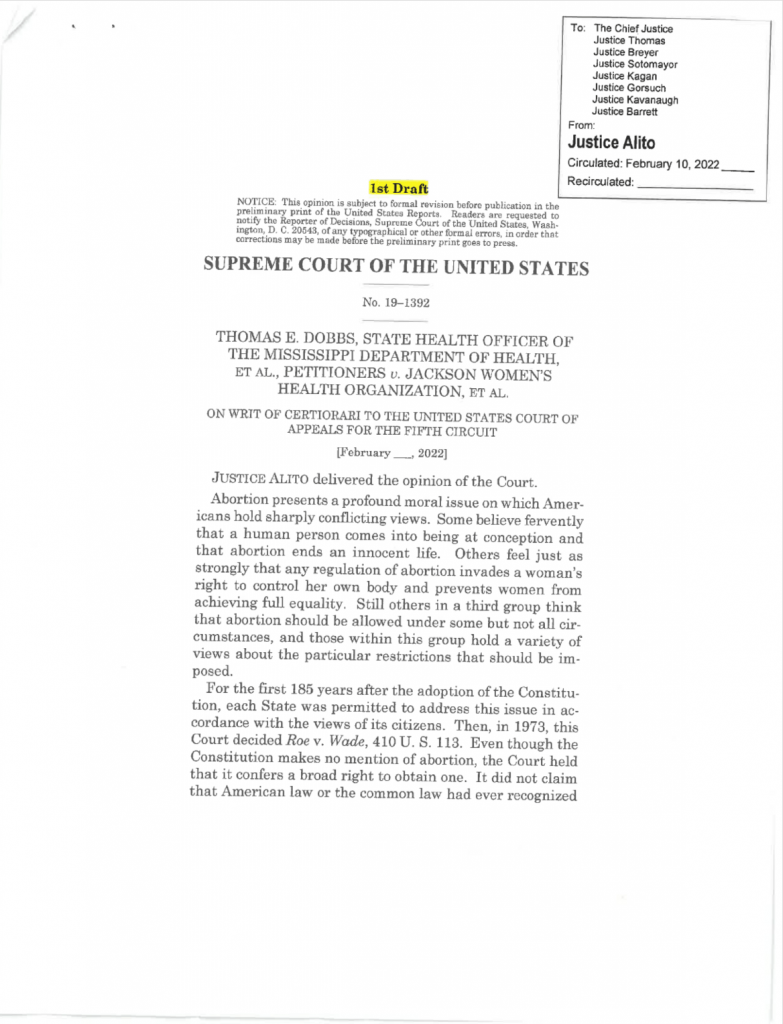
If the Supreme Court follows the draft opinion when it is officially published in June, people with uteruses would no longer have the right to an abortion federally, leaving the decision up to each states’ representatives. In many conservative states this means forced birth and the loss of bodily autonomy. The Handmaid’s Tale doesn’t sound so dystopian anymore, does it?
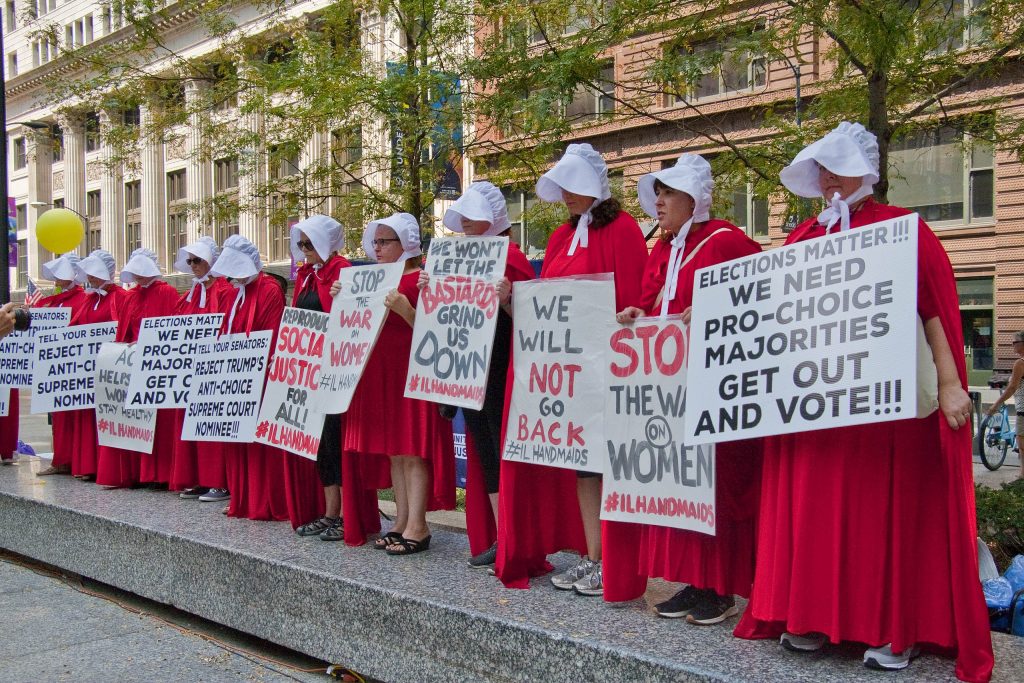
Right now, 13 states have trigger laws in place. These are laws that are ready to go into effect immediately if Roe v. Wade is overturned. Arkansas, Idaho, Kentucky, Louisiana, Mississippi, Missouri, North Dakota, Oklahoma, South Dakota, Tennessee, Texas, Utah, and Wyoming all have some type of trigger law in place, many of them penalizing abortion with prison time. Of all the bans, the Texas law is the most extreme, banning abortion at six-weeks…often before people even know they are pregnant. The unimaginable, painstaking decision to end a pregnancy must now also include the question: Is this worth risking jail time?
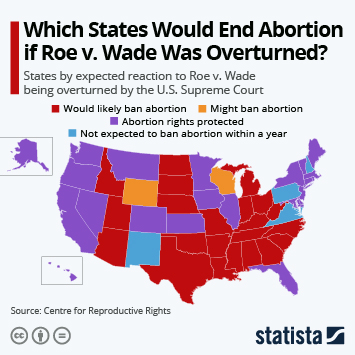
Data from the Pew Research Center and the Guttmacher Institute have found that 54% of the country is in favor of the right to choose. So why is the Supreme Court in favor of overturning a law that the majority of the country actually supports?
Because this has never been about saving lives or protecting the “un-born.” It has always been about controlling women’s bodies and what they choose to do with them. From the beginning, abortion rights have been dictated by men. Men who don’t get pregnant and therefore do not have abortions themselves.
The American Medical Association (AMA) was formed in 1847 by male doctors who believed they should be the authority on all medical practices, including when abortions could be performed. The AMA launched a campaign to criminalize abortion. Members believed it to be immoral and medically dangerous, and were anxious to replace midwives because they were the main providers of abortions. By 1910, abortion was illegal nationwide. In 1930, unsafe abortion was the cause of death for almost 2,700 women. It wasn’t until the 1960s that women finally began to see abortion rights return.
Political leaders and other supporters of abortion bans claim they are pro-life, but what they are failing to acknowledge is the cold hard fact that banning abortion actually causes more deaths. Deaths of already living, breathing people.
According to the Guttmacher Institute, in countries that restrict abortion, the percentage of unintended pregnancies ending in abortion has increased during the past 30 years, from 36% in 1990–1994 to 50% in 2015–2019. Abortion actually decreases when people have safe and legal access to abortion. Not to mention, unintended pregnancies decrease when abortion is legal and increase when it is not.
The devastation of illegal abortion increases exponentially for people of color and poor communities. In 1976, three years after Roe v. Wade was enacted, the Hyde Amendment was introduced. This prevents government insurance programs, like Medicaid, to pay for abortion services, except in instances of incest, rape, or life-threatening risk to the pregnant person. Medicaid disproportionately serves Black, Latino and LGBTQ+ communities. In 2014, 75% of abortion patients were low-income, according to the Guttmacher Institute. Travel expenses and out-of-pocket costs are among the many hurdles women will be forced to overcome when seeking an abortion. If Roe v. Wade is overturned, the average distance someone would have to travel for an abortion increases by 97 miles. That is a lot of gas money.
For every claim lawmakers make in support of their decision to restrict abortion access, there is overwhelming proof that they do not care about protecting life and the safety of mothers.
The leak of the Supreme Court’s opinion draft has proven to be a disappointing blessing. For the public to learn which way the Court is leaning before the official decision has been made presents the opportunity to fight back and protest before the worst happens. Remember, abortion is still legal. Ever since the leak, protests have erupted nationwide, hoping the evident outrage and opposition of this decision will change the minds of the Supreme Court.
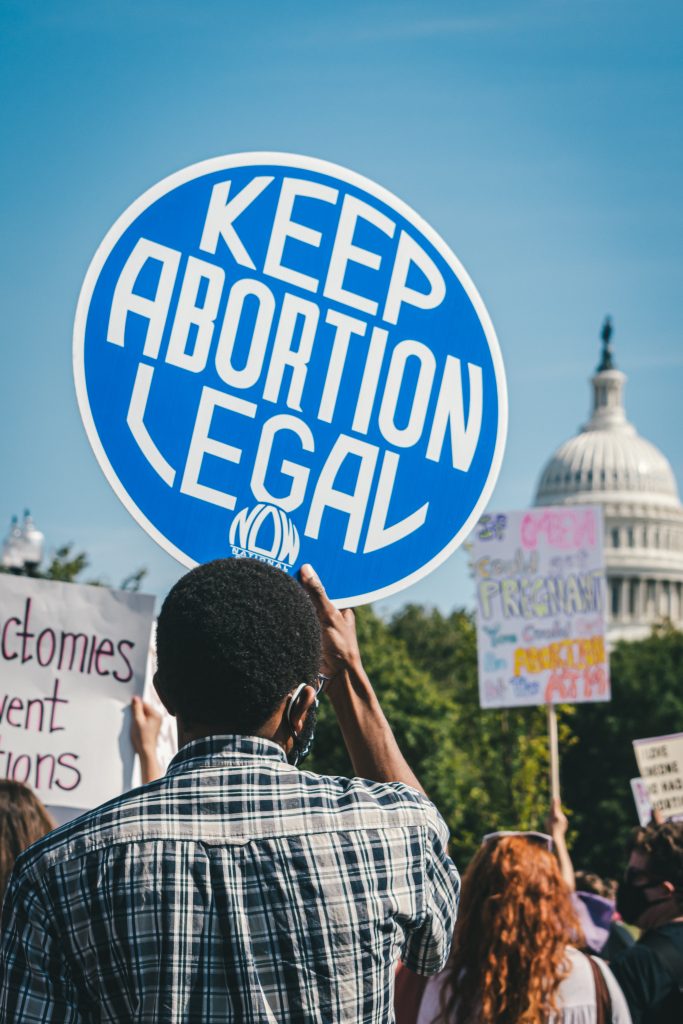
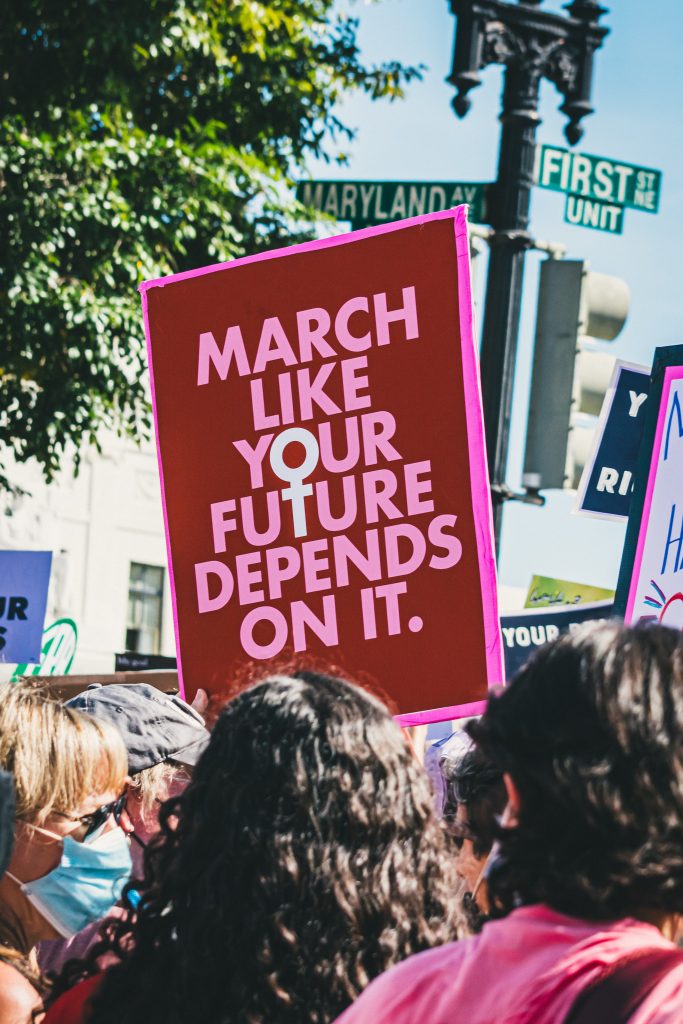
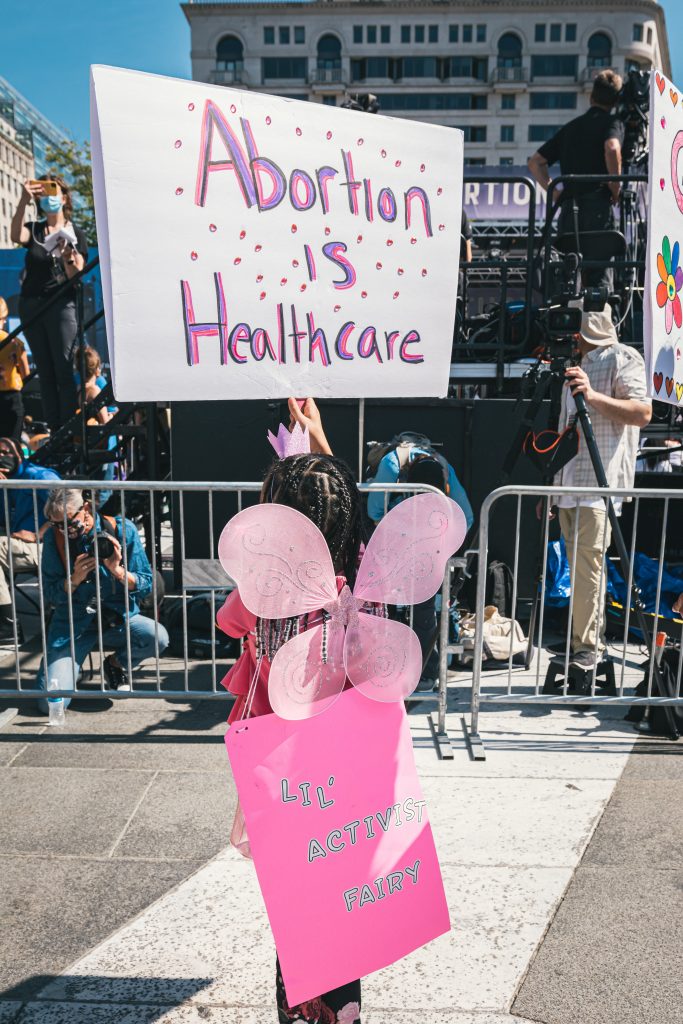
This is a pivotal moment in history, and one that would effectively set women’s rights back by 50 years. If this happens, we’d have the first generation with less rights than the one before us. We don’t know for sure what the outcome will be, but this is an attack on a human right. An attack on women.
Overturning Roe v. Wade will not stop abortions, but it will stop safe abortions.
You can contribute your voice to the fight for abortion rights during the week of resistance from May 8 – 14, culminating in nationwide protests. Learn more here:
https://riseup4abortionrights.org/may-8-14-week-of-action/
RESOURCES:
Planned Parenthood of Greater New York
https://www.plannedparenthood.org/planned-parenthood-greater-new-york
National Abortion Federation
https://prochoice.org/
RiseUp4AbortionRights
https://riseup4abortionrights.org/



